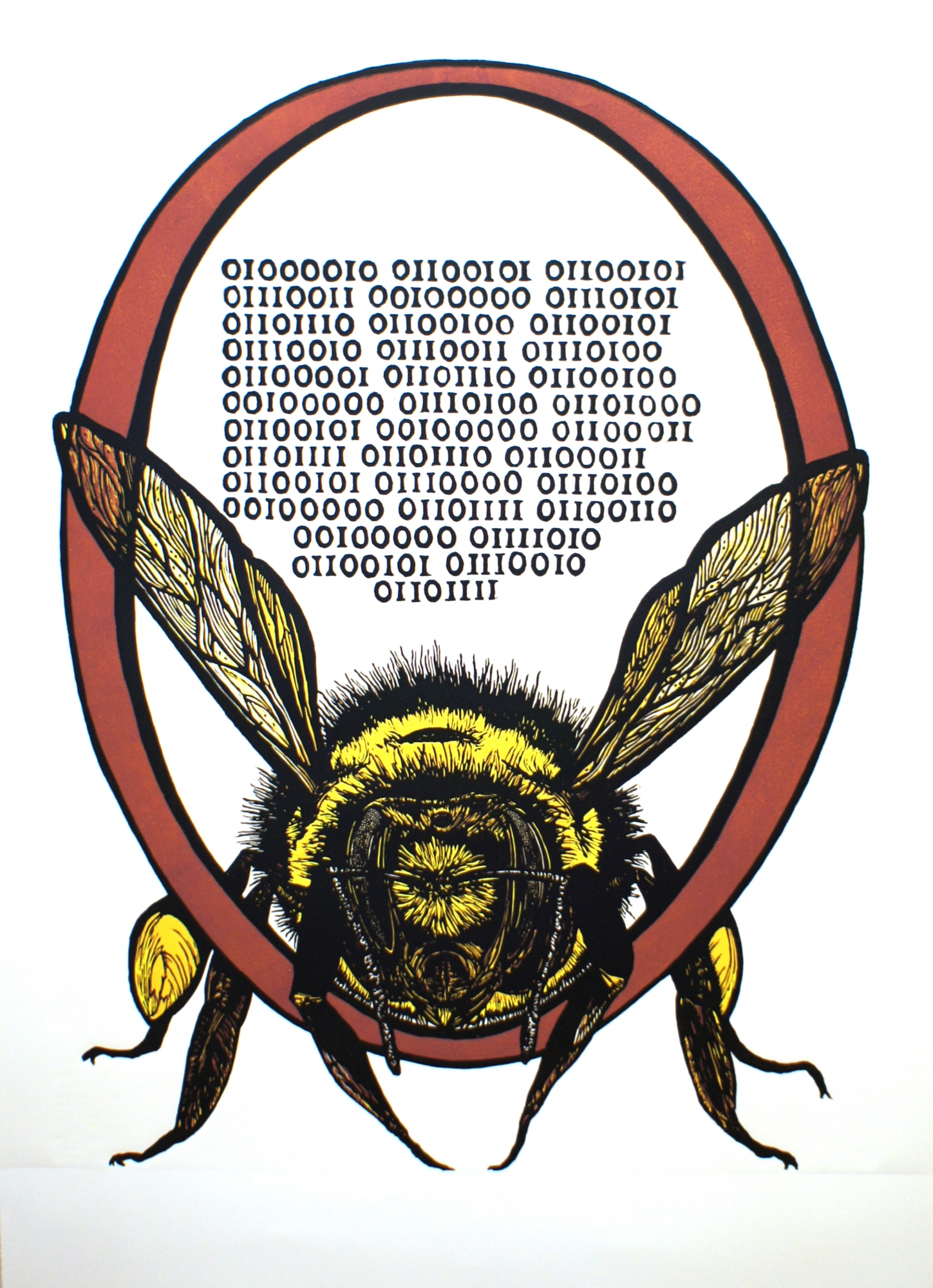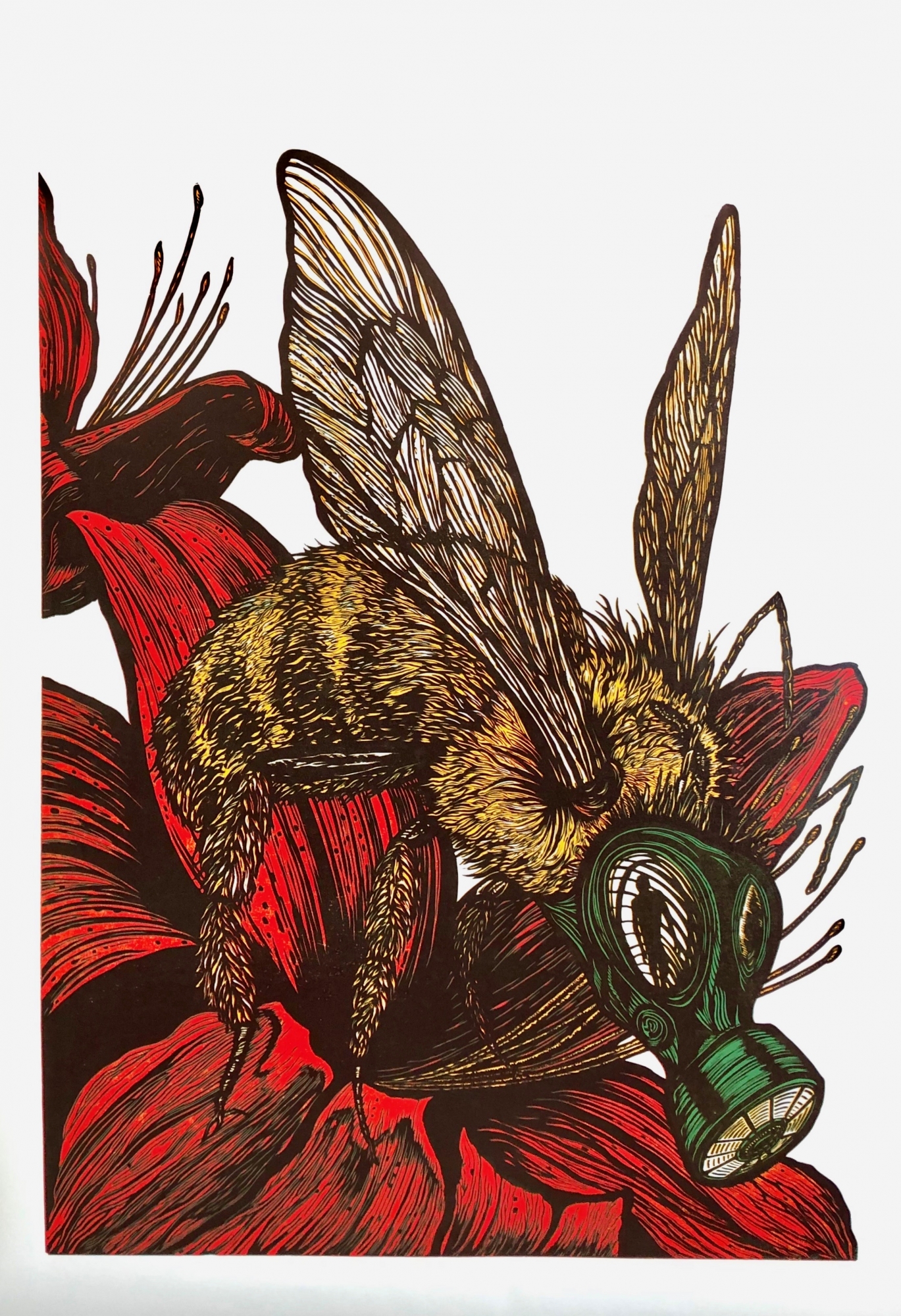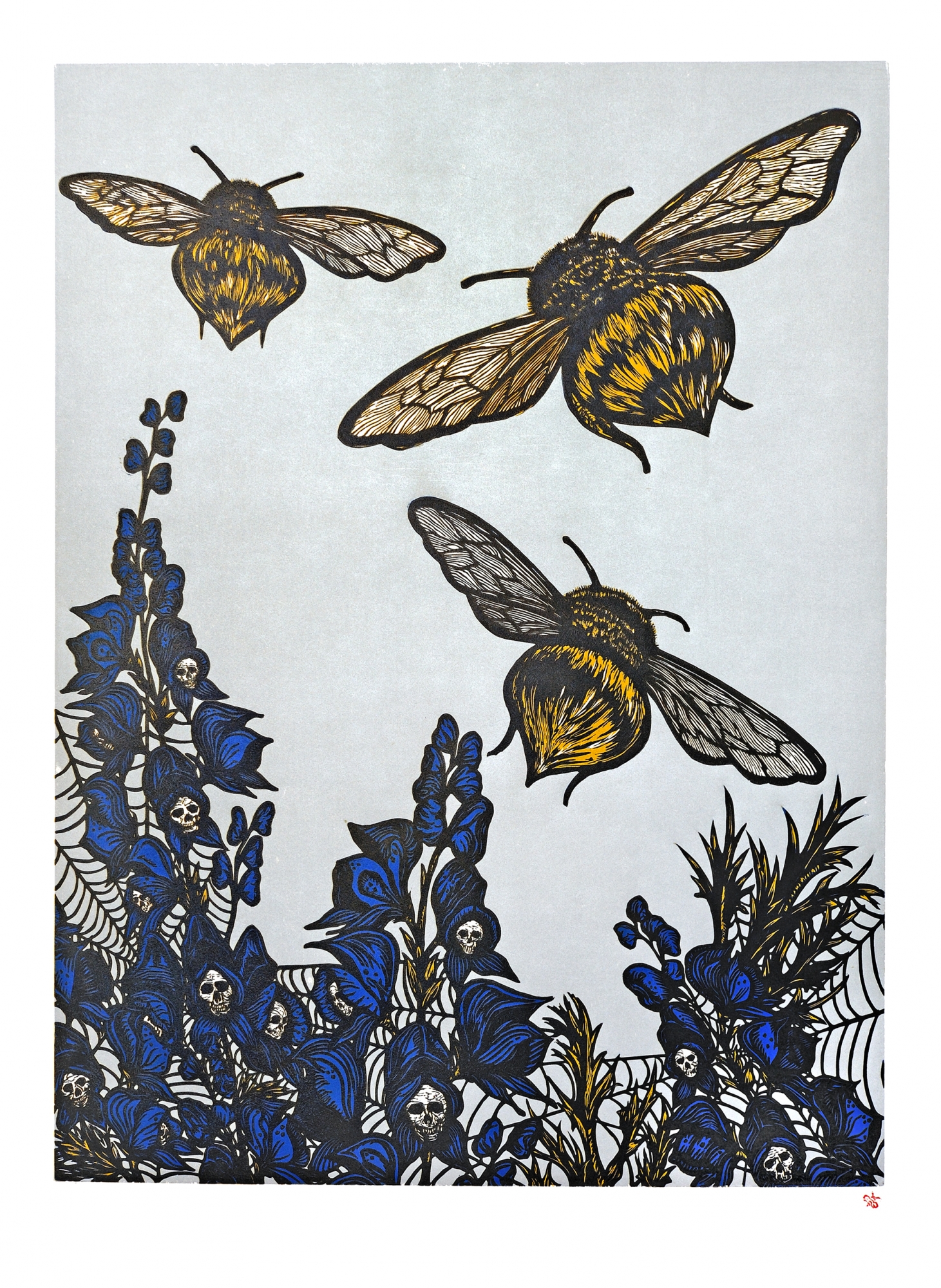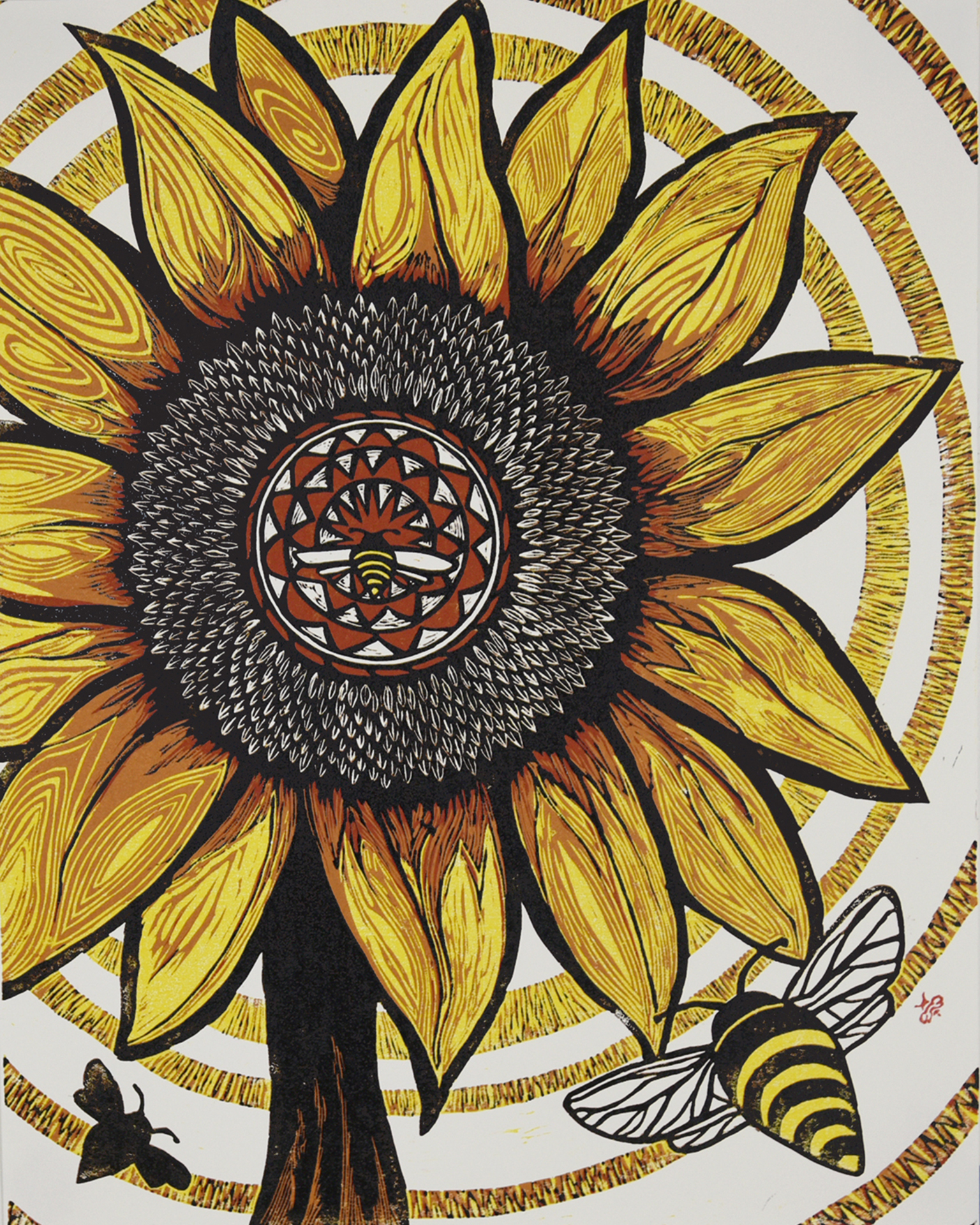Steven Munoz
Steven Munoz
Originally from New Mexico, Steven attended American University in Washington, DC where he received a Bachelor of Fine Arts degree with a concentration in printmaking. His work is in the permanent collections of: Western Railroad and Mining Museum in Helper, Utah; Arlington County Government, Virginia; the Montgomery County Public Art Trust, Maryland, and the DC Commission on the Arts and Humanities Art Bank.
Since 2009, Steven has been the Director of the Lee Arts Center, a program of Arlington Cultural Affairs. Steven enjoys spending time as: a board member of City Blossoms; a certified DC Master Gardener; a dog owner, and a coffee drinker.
Midway Bee is the name of his printing press and the name comes from a quote from Hesiod, "The earth bore much substance, on the mountains the oak at its top yielded acorns and midway bees." Bees, gardening and oak trees have long been an interest and presence in Steven's life.
I have been working on a body of larger format work that focuses on fauna and pollinators of the DC area, primarily bees. As a printmaker who is certified in Master Gardening and Sustainable Urban Agriculture, I have always had a passion in pollinators and nature, as well as bringing attention to the plight of these pollinators in urban settings through my work.
At first glance my work has prettiness to it, but upon further examination, themes of man against nature, death and social commentary rise to the surface. It’s estimated that globally we spend $65 billion on pesticides and herbicides and since 1990 there are nearly one billion fewer monarch butterflies in the world because of mass herbicide use. On top of that, pesticide use has also caused a collapse of other pollinators — wasps, beetles and especially honeybees. I am inspired by nature itself in creating my work: I maintain a poison garden, plants that can harm or maim and I often use poisonous plants as metaphors for systemic herbicide or pesticide use; or song lyrics from a rock opera will inspire me to convey an idea of genetically modified organisms rising up against bio engineers.
In many ways bees are like the air we breath: they are everywhere; they are integral and for the most part unseen. Everyone knows bees exist but few people stop to think about them. The bee isn’t just a fascinating and beautiful insect: it is a metaphor for a profound web of relationships, great and small, that binds together the human and the natural worlds.











































